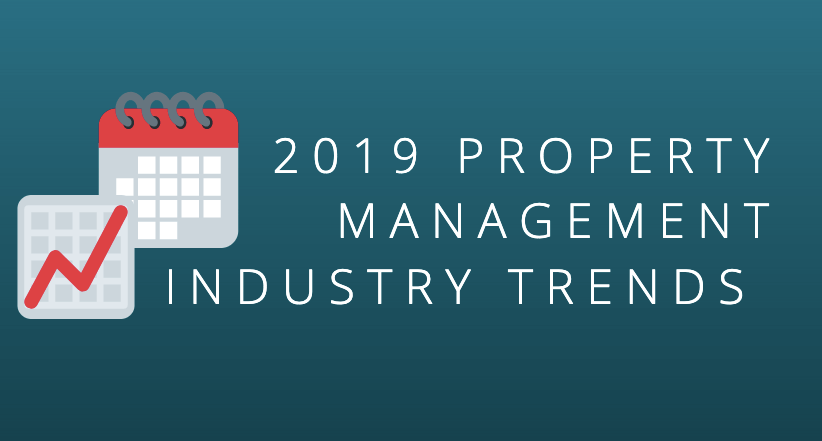
The nationwide success of the renters market has come with a mixed bag of triumphs and challenges in 2019.
That’s why we wrote this real estate forecast; to help property managers like yourself get a clear look at the year’s current property management trends.
Keep on reading to find out how the industry has been adapting to the ever-evolving demographics and expectations that shape this industry.
Personalized Customer Service
The dramatic rise of renters over owners is not only due to some inflated real estate prices.
Forbes has called this change in the market an “emotional shift”.
It found that, in the current market, the trend amongst residents is to pursue the feeling of being at home, as opposed to actual homeownership.
Backing this finding, one of the respondents in the Buildium’s 4th Annual State of the Property Management Industry Report claimed that properties can’t remain “4 walls and a payment due on the first of every month.”
While it’s important to be aware of state and local attitudes towards rent control, for the time being, your biggest asset as a property manager will be personalized service offerings.
What does that look like?
Work on soliciting feedback from your residents to understand what they want from their residency. You’re not just an entity that collects rent and conducts inspections.
You must get the data that will point to why residents stay or leave to survive this change in the market. It shouldn’t be difficult given that you’re the property owner’s first point of contact for those residents.
Should you swap amenities and host more events? Or would a resident prefer that you lock their rate in or compensate a utility?
Use the answers to inform your retention strategy.

Greater Accessibility Through Technology
A consistently growing trend is that property managers feel that efficiency is a major point of concern.
Looking for the way of the future? Use technology to route problem-solving.
The nationwide housing shortage has led to an average nationwide vacancy rate of 7%. This means that there are a lot more residents clamoring for attention and a lot more applicants to be processed.
It’s going to be absolutely necessary to streamline your property management processes with technology.
Technology usage in the real estate industry is not limited to text messaging and emails to post announcements and pull resident feedback, or to market your available units.
Referencing the first trend that we mentioned, use technology to position yourself as a customer service expert to both your owners and residents.
Property management software and apps can introduce cloud services and automation to your business.
- Tenants will love having a portal for submitting online payments and repair requests.
- Owners will love having a portal for demographic analytics, tenant screenings, and earnings reports.
Both will enjoy the perceived accessibility. When you marry empathy with tech for faster communication and long-lasting loyalty, there’s a huge pay-off. Especially for vendors and staff.
Vendor Quality and Staff Retention
Another unfortunate trend in the real estate market? A surge in staff turnover and a shortage in reliable vendors.
In order to protect the residents and the value of the investment property, a trustworthy maintenance crew that performs regular repairs, requests, and inspections is non-negotiable.
While there’s already an urgent industry-wide demand for maintenance staffers, there’s also intense competition as high-paying developers poach quality workers.

Managing, hiring, and training office staff also proves difficult across states like Indiana as the lack of maintenance staff makes repairs slower to resolve.
The frustrated tenants quickly cause staff to burn out and quit. Throughout the industry, while resident retention is always top-of-mind, staff retention should be of equal if not greater concern.
Property managers are working to make properties an enjoyable place to work so that the happier, calmer staff will help to make it an enjoyable place to live.
Attract and retain talent by providing mentorship between older and newer employees. This makes the work seem more meaningful and makes your staff more capable.
Remember: recruiting and training new talent draws on your time and impacts your ability to grow your portfolio.
Portfolio Stagnancy and Decline
Nationwide housing sales were at a record high and aren’t slowing down, leading to portfolio loss for many property managers.
With home values up, owners would rather make a quick profit than continue their landlord duties.
How do you adapt?
Many property managers are branching into new markets.
With an affordable housing shortage and home values quickly outpacing resident wages, the intersection of these trends has pushed property managers towards smaller businesses as a means of growing and sustaining portfolios.
To continue growing your residential portfolio, encourage property owners to look to you for expertise.
Combine the above three trends of personalized customer service, greater accessibility through technology, and the ability to provide quality staff and vendors.
If you lay out how you can help a property owner stay profitable, they’ll have incentive to hold on to their property, meaning you can hold onto their business.

At the heart of all these trends? Humanity.
Customers want to be seen. The right property management company is there to improve owner and renter connections.
They should also free up time for you to deepen those relationships yourself or focus on your growth.



